|
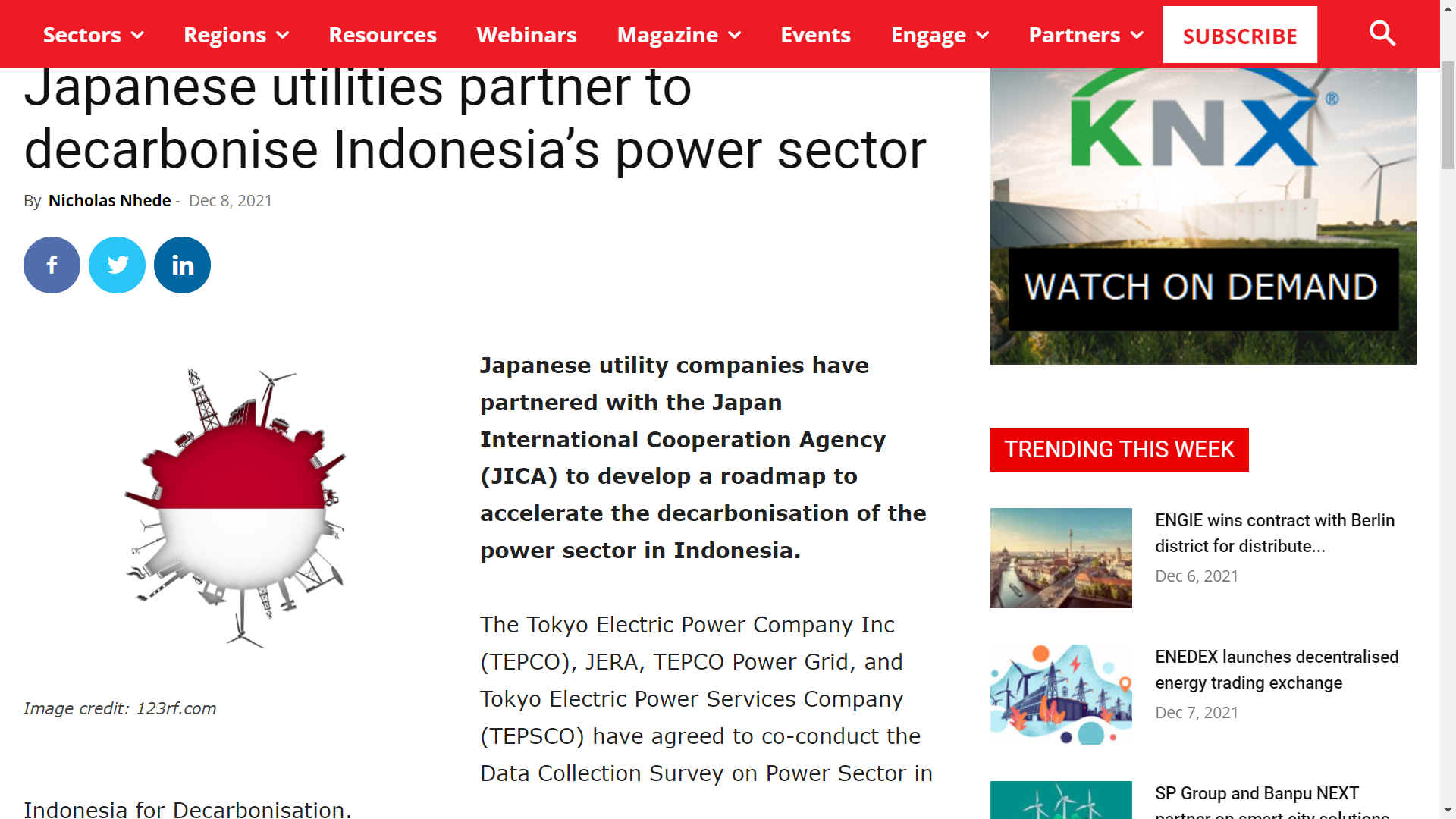
DECEMBER
8 2021 - Japanese utility companies have partnered with the Japan International Cooperation Agency (JICA) to develop a roadmap to accelerate the decarbonisation of the power sector in Indonesia.
The Tokyo Electric Power Company Inc (TEPCO), JERA, TEPCO Power Grid, and Tokyo Electric Power Services Company (TEPSCO) have agreed to co-conduct the Data Collection Survey on Power Sector in Indonesia for Decarbonisation.
The four companies have established a joint venture to deliver the project from November 2021 through March 2022. The project includes gathering and analysing data on Singapore’s current energy market trends and future outlook.
JICA wants to help Indonesia to achieve its goal of becoming carbon neutral before 2060 as pledged by the government in July 2021 during the United Nations Framework Convention on Climate Change (UNFCCC). Today Indonesia is the largest energy consumer in the Association of Southeast Asian Nations (ASEAN), accounting for nearly 40% of ASEAN’s total energy use.
The agency will leverage roadmaps developed by the four companies to help Indonesia reduce its reliance on coal-fired energy generation and retire conventional energy generation. The roadmaps are expected to help Indonesia achieve its target of 23% of its total energy produced from renewables by 2025 and to curb the construction of new coal power plants by 2030.
Although electrification has been steadily growing in Indonesia, energy demand is also increasing, risking the country’s transition to smart energy solutions and decarbonisation, according to the statement.
As such, recommendations set to be provided by the four companies are expected to play a critical role in helping Indonesia to reduce its greenhouse gas emissions from power generation whilst ensuring energy security.
TEPCO Power Grid will act as project supervisor and will conduct a study on power development and demand assumptions whilst TEPCO will study energy policies, regulations and financial and economic assumptions for decarbonisation.
TEPCO will be responsible for project administration and operational support.
JERA will act as assistant project supervisor and will conduct studies on low-carbon and decarbonised thermal power solutions.
TEPSCO will study the transmission network and how it can be optimized to transport an increasing amount of renewables.
JICA will leverage the roadmaps developed to assist Indonesia Under the Asia Energy Transition Initiative (“AETI”) announced by the government of Japan in May 2021.
JICA will also work with the four companies to implement the roadmaps they would have developed.
TEPCO Power Grid will provide its experience in building and operating transmission and distribution networks, TEPCO its expertise in institutional and financial aspects, JERA its experience in developing net-zero roadmaps for overseas businesses, and TEPSCO its energy consulting and advanced technical services across Africa and Asia.
The development follows the Indonesian government signing an agreement with the International Renewable Energy Agency (IRENA) during the recent COP26 summit in Glasgow, to leverage the agency’s expertise and network to speed up its energy transition.
Commenting on the agreement, Indonesia’s Energy Minister Mr. Arifin Tasrif, said: “Indonesia has committed to reducing greenhouse gas emissions 29% by 2030 and has set a more ambitious target of net-zero emission by 2060 or sooner with international support.
“However, there is a lot to be done domestically in terms of policy, technology, and financial flows. We need support from other countries and international organisations with expertise like IRENA. We look forward to working closely with IRENA to prepare Indonesia’s energy transition.”
In an unusual policy twist Japanese utilities have agreed to
work together to help decarbonise Indonesia's electrification,
while Japan is still building coal fired stations at home -
presumably by way of an insurance policy, where their own
hydrogen infrastructure is stymied by the horribly slow pace
that the IMO works in adopting climate friendly regulations -
such as to ensure LH2 might be tankered in by ship, to replace
coal imports.
It
seems like one of the most perverse contradictions imaginable on
the global warming stage, but one that may also count as
mitigation for both countries, in working together, not to build
coal electricity
stations, and make the same miscalculations as Japan, that might
tie Indonesia to fossil fuels for the next 30-40 years. Well
done (in advance) to Japan International Cooperation Agency (JICA).
It
also means that Indonesia under Joko Widodo, is taking COP26
commitments seriously, in reaching out. Provided that they are
able to follow through with greener roadmaps to net zero
emissions. Indonesia, is better placed than Japan, to set up wind
and solar farms,
for example, to support EVs and more.
https://www.smart-energy.com/regional-news/asia/japanese-utilities-partner-to-decarbonise-indonesias-power-sector/
THE
DIRTIEST DOZEN COUNTRIES BY CO2, METHANE AND PRODUCTION AND
DEFORESTATION
|
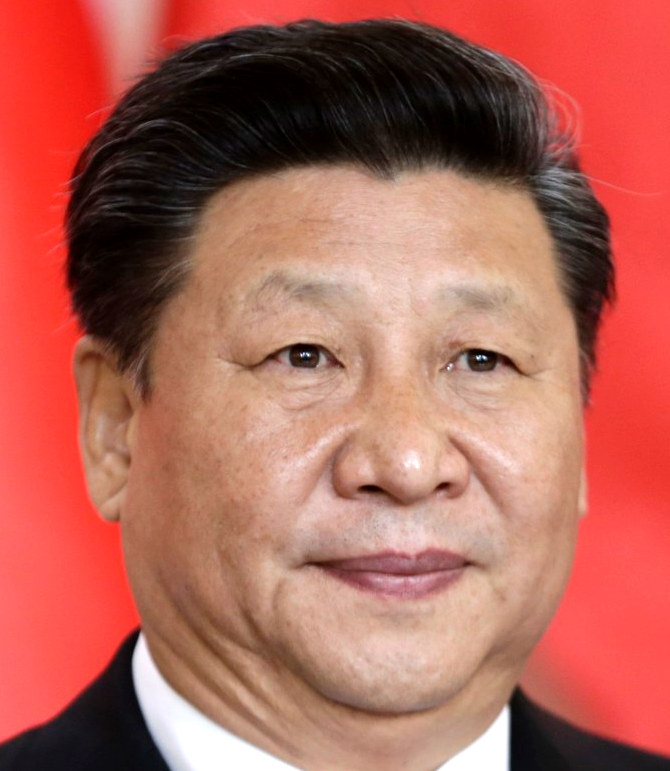
Chinese
President
Xi
Jinping
|
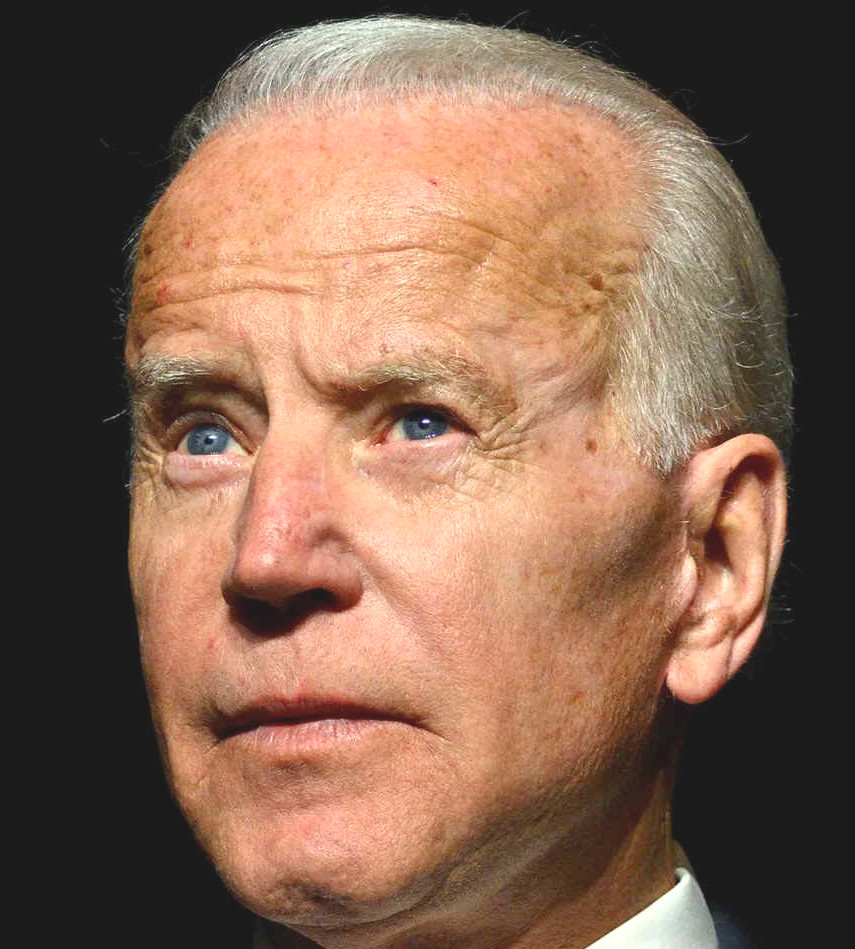
US
President
Joe
Biden
|

EU
President
Ursula
von der Leyen
|
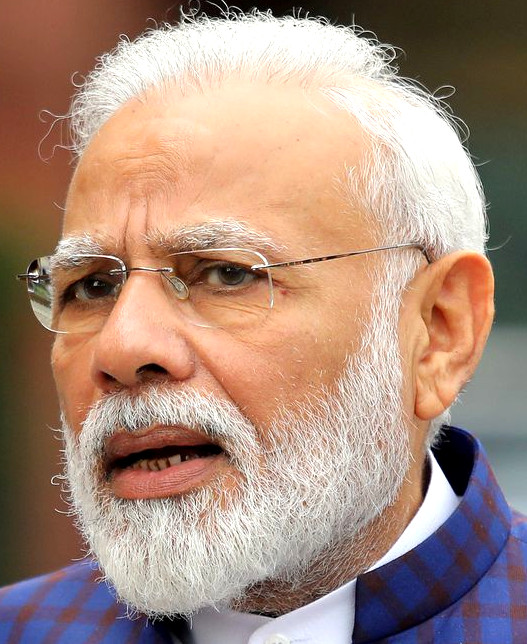
Indian
PM
Narendra
Modi
|
|
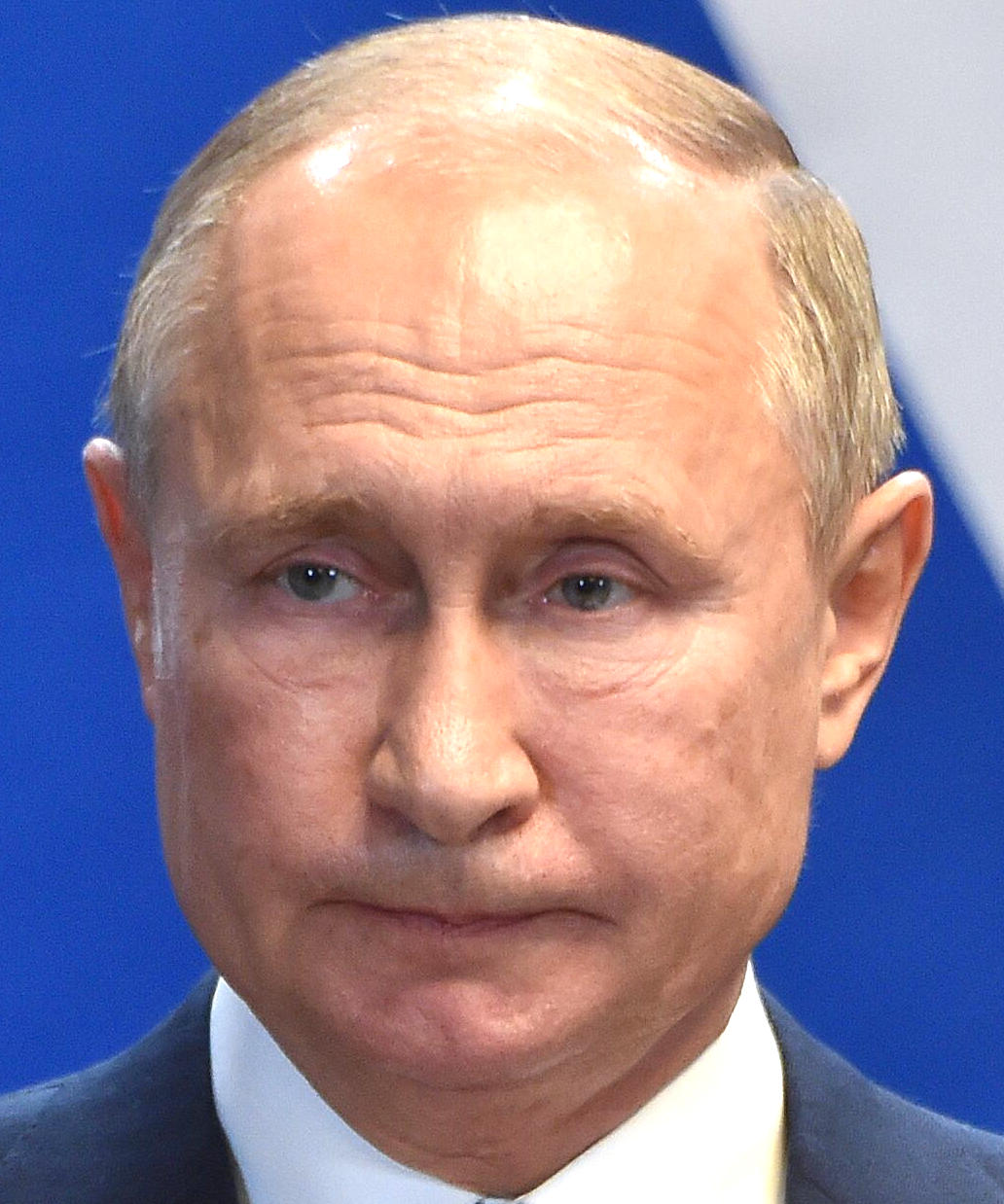
Vladimir
Putin
Russian
PM
|
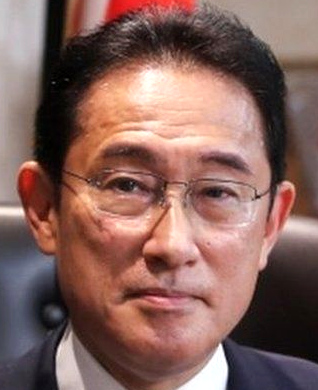
Japanese
PM
Fumio Kishida
|
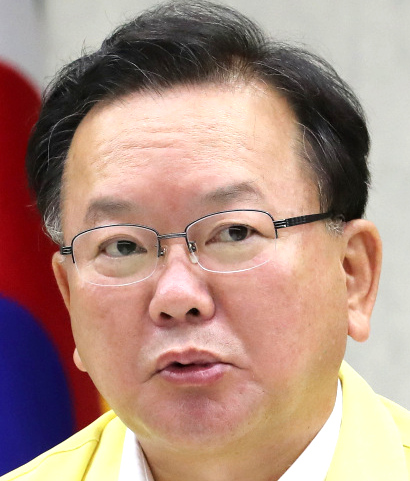
Kim
Boo-kuym
South
Korean PM
|

Mohammed bin Salman
Saudi
Arabian Ruler
|
|

Justin
Trudeau
Canadian
PM
|
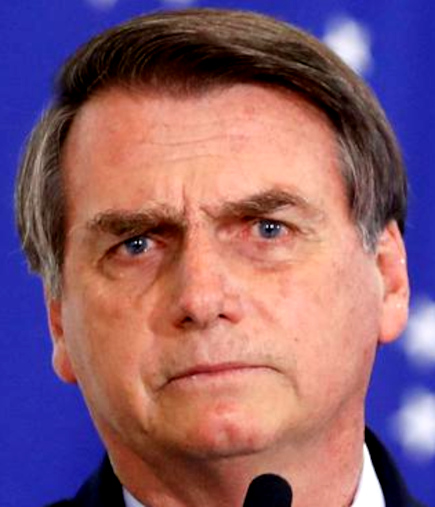
Jair Bolsonaro
Brazilian
PM
|
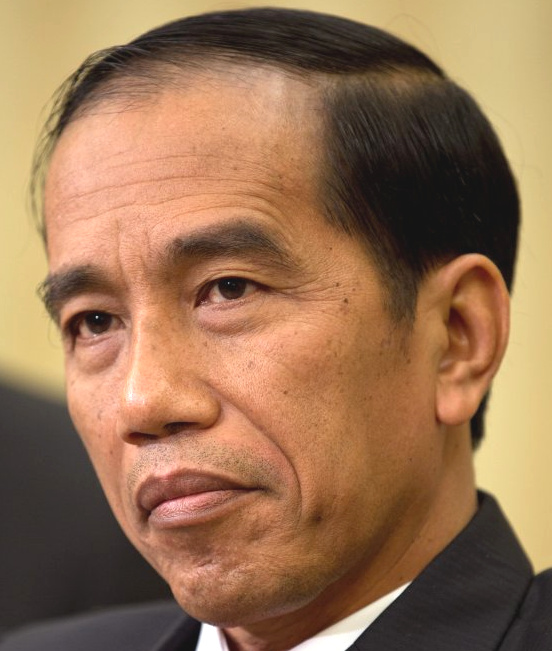
Joko Widodo
Indonesian
PM
|
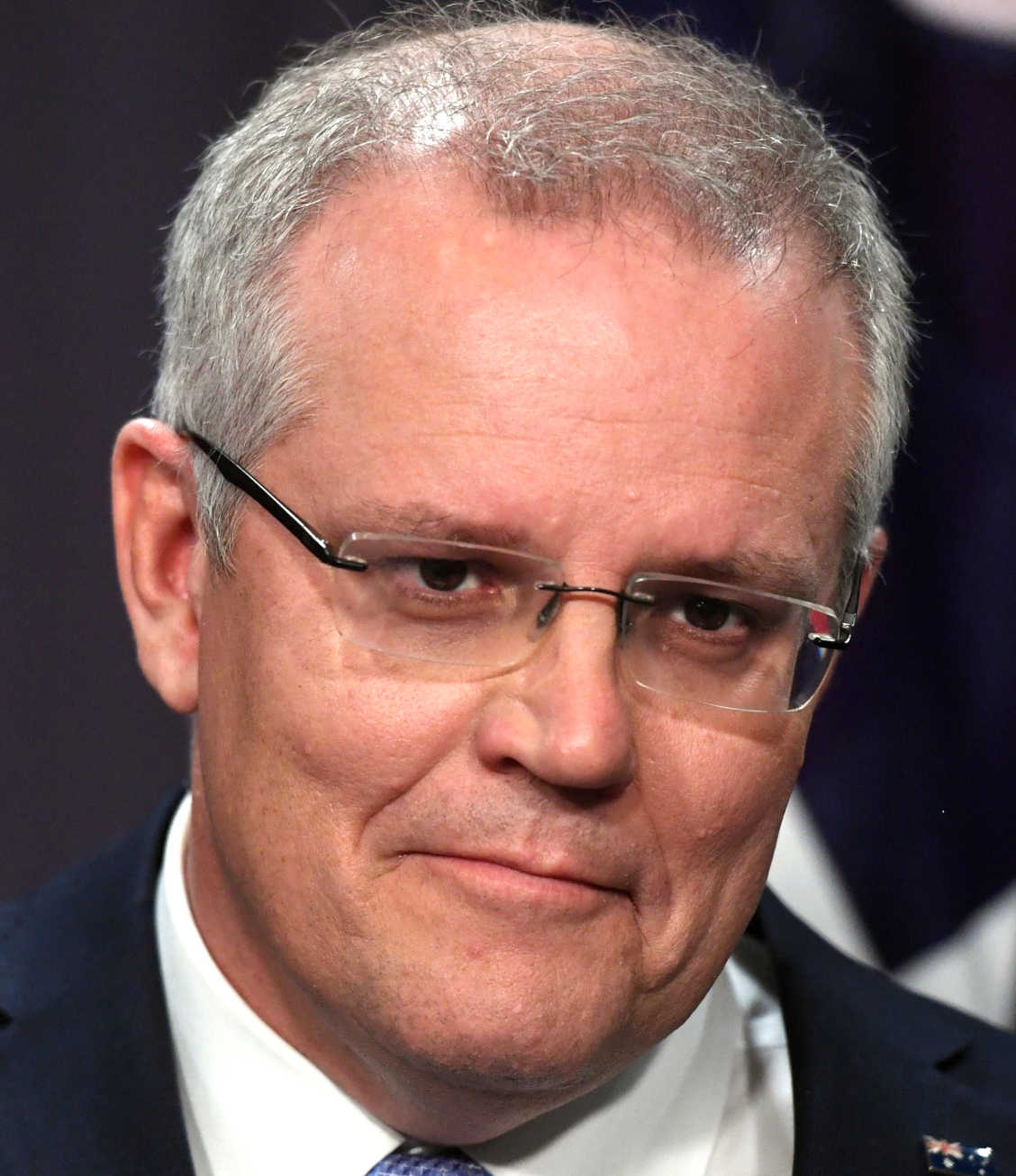
Scott
Morrison
Australian
PM
|
G20
abusers will say they had no choice. They needed to keep
burning coal, gas
and oil for their economies - just like the camp guards at the
many concentration camps, they were forced into business as
usual. In the case of the camp guards, they argued they were
just following orders. But that is not true. We all have
choices. There are clean alternatives, such as solar
and wind
power. There is no need to keep building coal
fired electricity
generating stations, and no need to drive carcinogenic petrol
or diesel vehicles that contribute
to lung
cancer. We have hydrogen
fuel
cells, electrolyzers
and zero
emission electric
vehicles.
If
you are going to increase electricity capacity, it makes sense
to invest in renewable
energy, unless it is that the fossil
fuel giants are lubricating the works with party donations.
If that is the case, we say that such contributions should be
transparently declared, that the public is informed as to what
is guiding policy decisions.
As
to logging, provided that 2 trees are planted for every 1 cut
down, cutting down forests for timber,
as an agricultural activity is sustainable. But clearing forests
without replanting, such as to grow food crops, is unsustainable,
where economic growth should be circular in nature, not linear.
This is what is happening in Brazil with the Amazon. Imports
from countries not adhering to the UN's SDGs, should be either
banned completely, or (carbon) taxed such as to make it
unattractive to investors and importers.
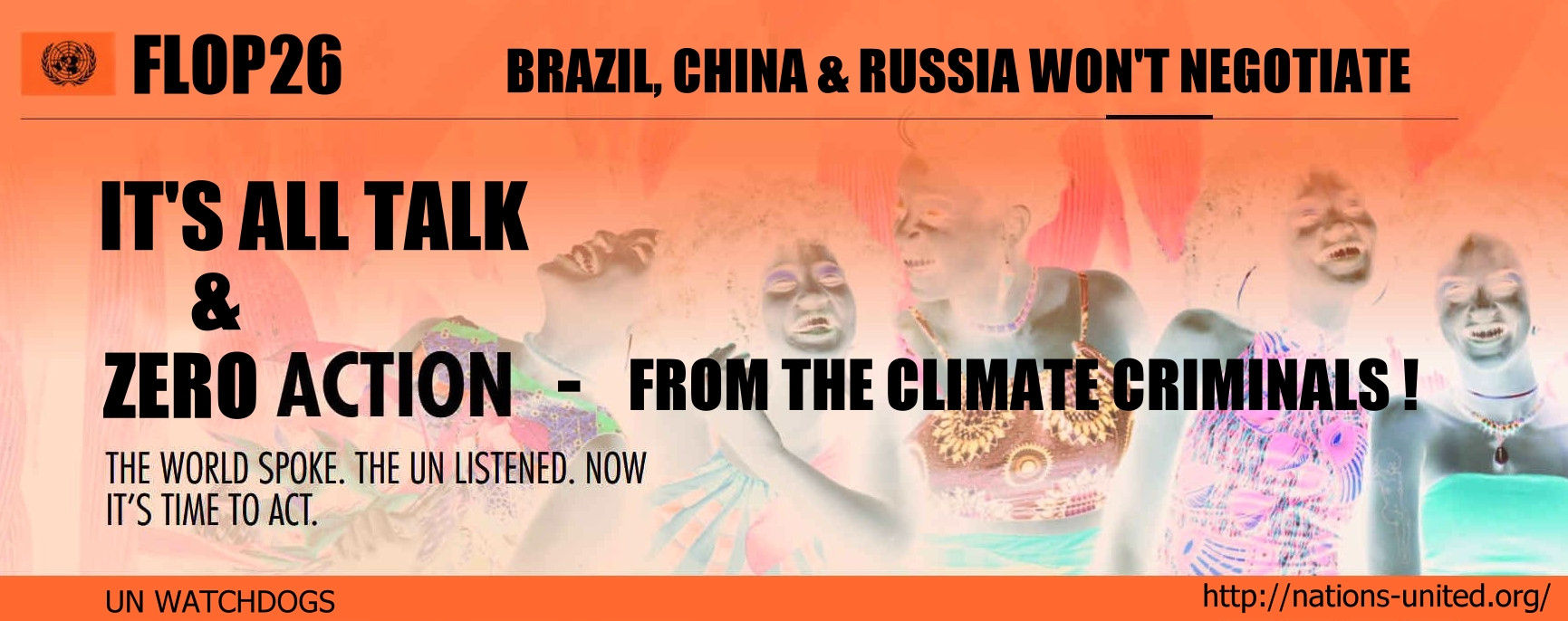
Assuming
that it takes 6 trees to provide the oxygen for each person on earth to
breathe, then with the population likely to rise from 7.7 to 9.7 billion
people in the next 30 years, that means we would need to plant an
additional 12 billion trees, or 400,000,000 million trees per year -
just for people to breath. That is over a million trees a day - or
roughly 5,000 trees per country per day. It is possible, but would
require significant effort and planning.
The
real question is though: would we have enough space on land to plant all
those trees, where only 30% of the Earth is land? With competing
pressure on land for agriculture,
houses
and industrial
buildings, that is the burning question.
Indonesia
is eleventh in the league of dirty countries on CO2
output.
THE GUARDIAN 5 NOVEMBER 2021
Indonesia has questioned the terms of a Cop26 deal to end deforestation by 2030, days after joining more than 100 countries in signing up to it.
The nations agreed on the multi-billion-dollar plan at the climate conference in Glasgow this week to stop cutting down trees on an industrial scale in under a decade.
But Siti Nurbaya Bakar, the environment minister for the south-east Asian archipelago, which is home to the world’s third-biggest rainforest, said on Wednesday that “forcing Indonesia to zero
deforestation in 2030 is clearly inappropriate and unfair”.
She said that there were multiple ways to define deforestation, and that any deal could not halt
economic growth. “The massive development of President Jokowi’s era must not stop in the name of
carbon emissions or in the name of
deforestation,” she said, referring to Joko Widodo by his nickname.
Bakar said Indonesia could not “promise what we can’t do” and that Indonesia’s priority was development, taking the example of forests that needed to be cut down to build new roads. The government has also stated that some forests will need to be cut down for the cultivation of food crops.
“Indonesia’s natural wealth, including forests, must be managed for its use according to sustainable principles, besides being fair,” she said.
Indonesia’s deputy foreign affairs minister, Mahendra Siregar, said that describing the deal as a zero-deforestation pledge was “false and misleading”.
Indonesia is home to the world’s third-largest expanse of tropical forest cover, but rampant deforestation since the 1960s has seen half of the country’s forests cut down by illegal loggers and to make way for commercial plantations such as palm oil.
The country has recently set itself ambitious targets for deforestation, including halving the deforestation rate over the next three decades as well as reforesting 26.2m acres of land by 2050. Last year saw the lowest rate of deforestation in Indonesia since the 1990s, which the government credited to new policies regulating forest clearance.
However, the recent pledges are at odds with development projects approved by the Indonesian government, which will likely see 135.9m acres of forest cut down by 2040.
In the declaration signed by Indonesia and more than 100 countries, leaders committed “to working collectively to halt and reverse forest loss and land degradation by 2030 while delivering sustainable development and promoting an inclusive rural transformation”.
British prime minister Boris Johnson said the agreement was pivotal to the overarching goal of limiting temperature rises to 1.5 degrees Celsius in a bid to slow
global warming.
A spokesperson for Johnson said he did not see a contradiction in Indonesia’s statements.
“My understanding of what the Indonesian government has said is that they need to be able to continue legal logging and
agriculture to support their economic development,” the spokesperson said.
“It would be consistent with the pledge – what countries have committed to is to end net deforestation, ensuring that any forest lost is replaced sustainably.”
Kiki Taufik, a forests campaigner with Greenpeace in Indonesia, regretted that the environment minister supported “large scale developments which clearly have the potential for environmental destruction”. “If we do not take immediate and substantial action to stop
deforestation … we cannot achieve our modest emissions reductions goals,” he said.
Although its rate of deforestation has slowed markedly since 2015, Indonesia’s vast forests are still shrinking.
According to Global Forest Watch, Indonesia in 2001 had 93.8m hectares (230m acres) of primary forest – ancient forests that have largely not been disturbed by
human activity – an area about the size of Egypt. By 2020, that area had decreased by about 10%.
https://www.theguardian.com/world/2021/nov/05/indonesia-says-cop26-zero-deforestation-pledge-it-signed-unfair

Adolf
Hitler and chum Heinrich Himmler [Allegedly,
Adolf Hitler did not die in that bunker incident C.1949.
Apparently, he was fired into England, strapped to a V1 rocket, leaving
behind his false teeth. He parachuted into Wealden that night
hoping to meet some deviants, who'd arranged a new identity for their
fallen comrade. Apparently, he landed in Crowborough, shaved off
his moustache and was mistaken for a council official, whereupon he
infiltrated the ranks of the local council and trained them how to use his
terror tactics to control the peasant civilians.
NAZI
LINKS
& REFERENCE
|

Adolf
Hitler
German
Chancellor
|

Herman
Goring
Reichsmarschall
Luftwaffe
|

Heinrich
Himmler
Reichsführer Schutzstaffel
|

Joseph
Goebbels
Reich Minister Propaganda
|
|

Philipp
Bouhler SS
NSDAP
Aktion T4
|

Dr
Josef Mengele
Physician
Auschwitz
|

Martin
Borman
Schutzstaffel
|

Adolph
Eichmann
Holocaust
Architect
|
|
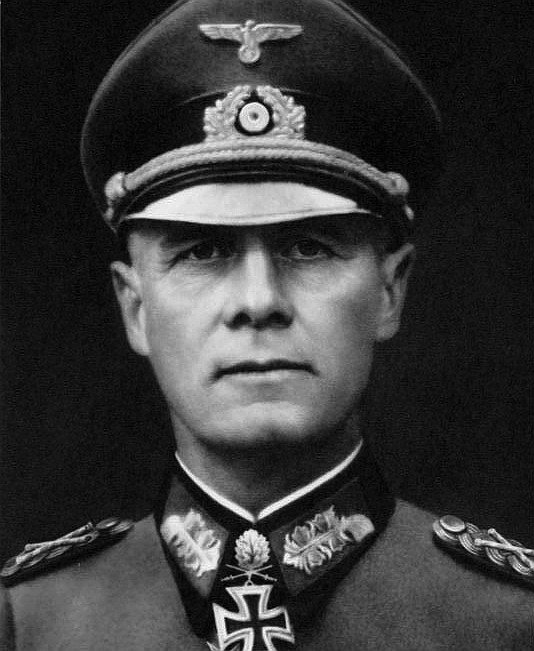
Erwin
Rommel
The
Desert Fox
|
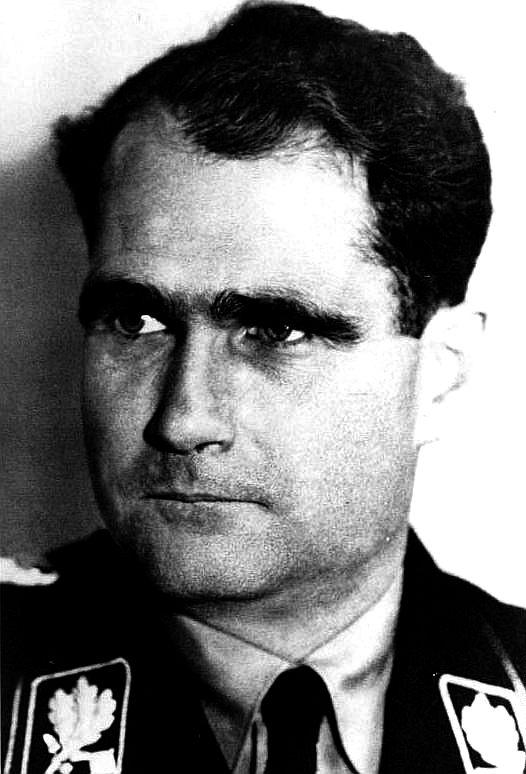
Rudolf
Hess
Auschwitz
Commandant
|

Karl
Donitz
Submarine
Commander
|

Albert
Speer
Nazi
Architect
|

Countries
that thumb their noses at climate change, such as to increase
harmful pollution, might have to face criminal prosecution via
the International Criminal Court, and the tenets of the Rome
Statute of 1998. Whereby it is a criminal offence to cause hurt
to another human, from your actions or failure to act to prevent
harm.


Nazi
concentration 'death camp' executions
A
Nazi war criminal
is a person who kills an unarmed human being or
gives the order to kill another human being outside the normal
rules of engagement in times of war.
In peacetime, a
Climate Change Criminal, is a politician,
industrialist or other entity that conducts
themselves and/or their policies such as to (in effect) murder
another human being from starvation or poisoning resulting from
action or inaction on their part, and including dumping plastic in
the sea to make fish
toxic.
This
philosophy extends to causing hardship and mental stress
(torture), contrary to
Articles 2 and 3 of the EU's Human Rights Convention and Articles
3 and 5
of the Universal Declaration of Human
Rights.
The
Indonesian
prime minister, Joko Widodo, is charged with failing to
protect life on
earth, as crimes against humanity and our ecology.

|





























